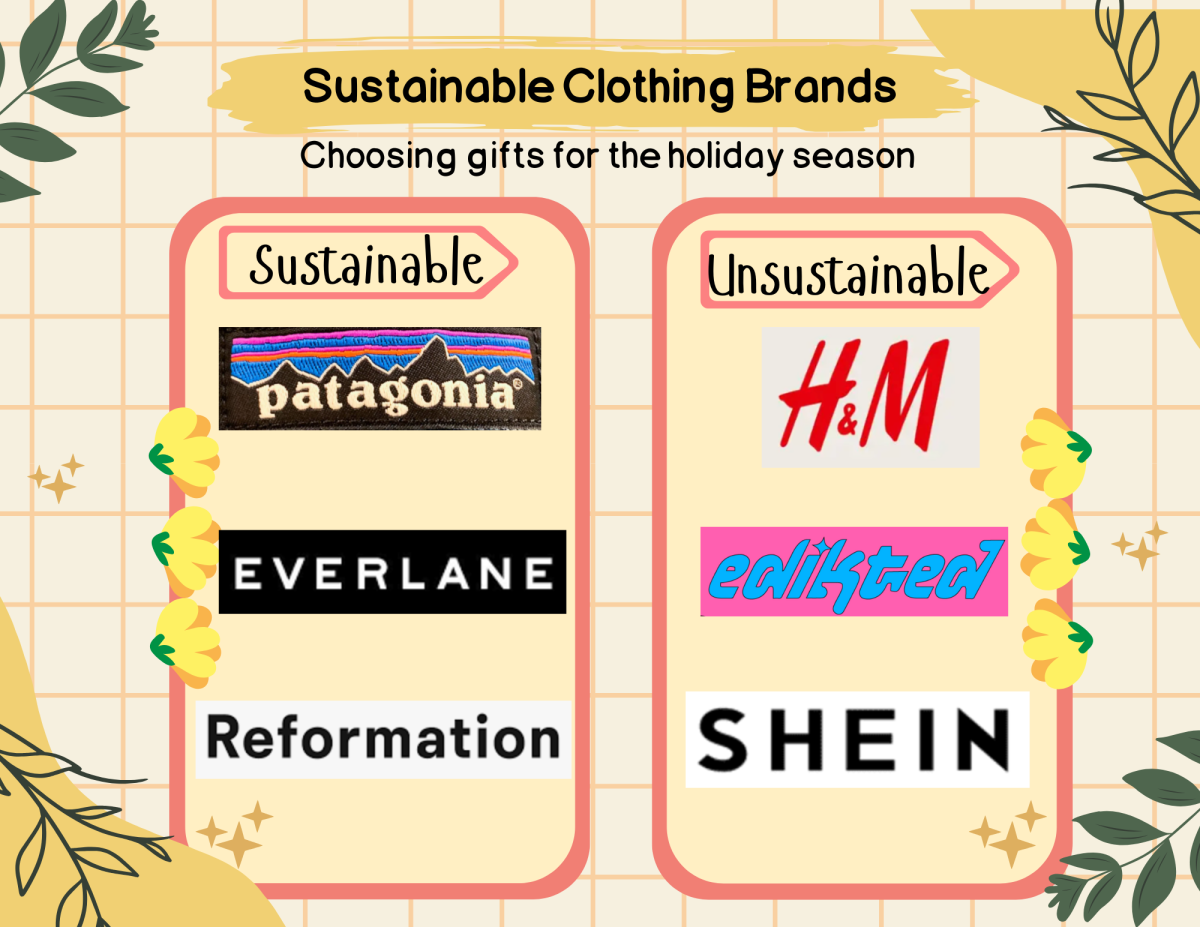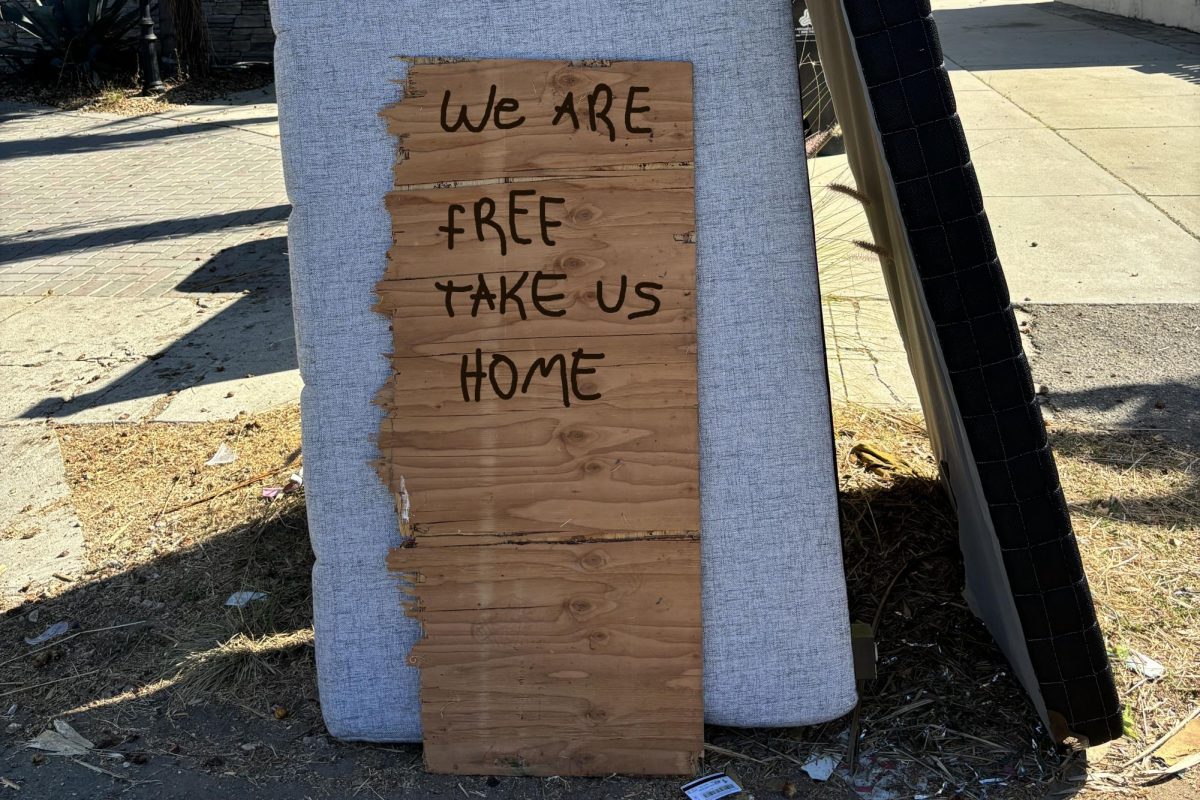From Halloween to Hannukah, the jam-packed holiday season consists of many classic recreational, design and culinary traditions. But, according to the Archer Council for Sustainability (ACS), even our favorite activities can come with heavy environmental footprints. The Oracle sat down with seniors Tavi Memoli and Grace Ryan, two leaders of the ACS and sustainability students, to discuss the concept of environmentalism during the holiday season.
What do you think are main ways people forget about sustainability during holiday traditions, and how can this be fixed?
Grace Ryan [GR]: Thanksgiving — I think of food waste. Christmas and Hanukkah — wrapping paper. Half of Christmas morning is putting paper in plastic trash bags. To combat this, I have a tradition that comes from partial laziness that I brand as sustainability: I wrap my family’s presents in leftover newspapers. Some of that can be industrially composted, but I wrap it and draw on the presents, and it feels so much more personal to me.
Tavi Memoli [TM]: Halloween definitely contributes to a lot of waste because of the candy wrapper issue, but it’s hard to know how to handle candy wrapper trash. When I was little, I just threw it in the trash because I didn’t know any better. Last year during Halloween, we found this program called Trash for Treasure. They collect organizations’, schools’ and homes’ candy wrappers and recycle them, specifically because mixed material candy wrappers can’t be properly recycled. We definitely made a solid attempt at educating the community on why it’s not sustainable.
When you guys look around at like your friends and community, what are their most unsustainable habits?
[TM]: I literally love my friends to death, but I’ve seen them one too many times forget trash. It’s one thing to educate yourself on sustainable issues, but if you’re not even aware of little things like picking up your trash after you leave someplace, that can have a really big impact over a long time, and it bothers me.
[GR]: Fast fashion also hurts, especially for going-out clothes you’ll wear once or twice and don’t mind ruining. The easiest way to get them is through prevalent fast fashion sites, and no sustainable brand can really compete with that. It has to be people’s choices, but people aren’t that motivated to make climate-conscious choices.
When you say sustainable brands, do you mean designer, more expensive pieces or clothes that are reused?
[GR]: Reformation is a great brand, Patagonia as well, although they tend to be more expensive. It really comes down to the culture of novelty and people frequently having new things instead of repurposing old things, which is why people are deterred from expensively priced things: if you’re going to wear it once, the price isn’t worth it. The value in buying something expensive or better quality is that it’s going to last longer. But the problem is that people don’t value re-wearing things.
[TM]: A lot of these trending clothing items are from fast fashion brands specifically, and maybe more sustainable companies aren’t necessarily producing that style of clothing, so where else are you going to get it? Also, it’s hard to come from a lower socioeconomic status and want to follow fashion trends but not have the money to necessarily fulfill that unless it’s through a fast fashion brand. So there’s an appeal in it being cheaper.
Do you think that a lot of unfriendly climate lifestyle choices are targeted at lower socioeconomic classes?
[TM]: People of lower socioeconomic status are targeted because fast fashion brands will use trends to target them, especially teenagers. Most teenagers aren’t making 1000s of dollars — they’re working minimum-wage jobs. So young TikTok influencers promoting certain brands will reach a teenage audience and create an inclination to buy clothes from those places because it’s easy to afford.
[GR]: The people who are of lower socioeconomic status and buying pieces of clothing are not the problem with fast fashion. I think the problem with fast fashion is mass consumerism when people who have enough money to invest in quality pieces choose to buy more quantity over quality and get rid of them faster. It’s about more rapid consumption and disposal.
Any other message you want to send to the Archer community about making sustainable lifestyle choices as we head into December?
[TM]: For a lot of people, sustainability might not be a passion. However, if you can figure out creative ways to incorporate sustainable habits into doing the things you love, it’s a lot easier to commit to consistent things when there’s something that you enjoy spending time doing.
[TM]: Don’t underestimate your power. Even doing the little things that contribute to a more sustainable planet matter. Although you might feel a little helpless with how to contribute, the little things really are important, and they add up.










